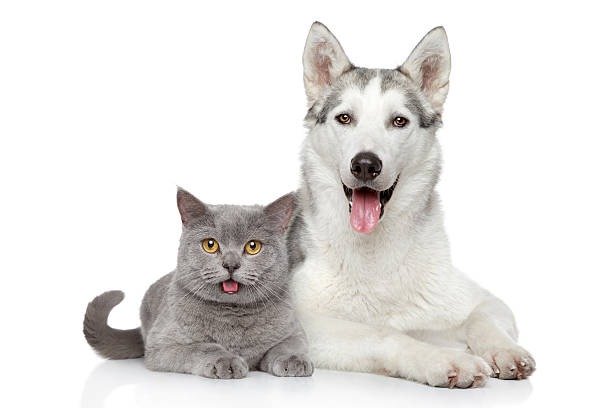Understanding the complexities of veterinary internal medicine is crucial for pet owners who want to ensure their furry friends live long, healthy lives. This guide aims to provide a comprehensive overview of common diagnoses, symptoms to watch for, treatment options, and preventive measures. By the end of this article, you’ll feel more informed and confident in managing your pet’s health needs.
Common Diagnoses in Veterinary Internal Medicine
Diabetes Mellitus
Diabetes Mellitus is a common endocrine disorder in pets, primarily affecting middle-aged and senior cats and dogs. Symptoms include excessive thirst and urination, weight loss despite a good appetite, and lethargy. Causes often stem from genetics, obesity, or an autoimmune condition. Treatment options typically involve a combination of insulin therapy, dietary changes, and regular monitoring of blood glucose levels.
Kidney Disease
Kidney disease can be acute or chronic and is more prevalent in older pets. Symptoms include increased thirst and urination, vomiting, weight loss, and poor coat quality. Causes may range from toxins and infections to congenital conditions. Treatment options include dietary modifications, medications to manage symptoms, and, in severe cases, dialysis or kidney transplants.
Thyroid Disease
Thyroid diseases, such as hyperthyroidism in cats and hypothyroidism in dogs, are common endocrine disorders. Symptoms for hyperthyroidism include weight loss, increased appetite, and hyperactivity, while hypothyroidism symptoms include weight gain, lethargy, and hair loss. Causes vary but may include tumors or autoimmune diseases. Treatment options encompass medications, dietary changes, and sometimes surgery or radioactive iodine therapy.
Symptoms and Diagnosis
Recognizing the common symptoms of internal health issues is vital for early intervention. Symptoms to watch for include changes in appetite or weight, increased thirst or urination, vomiting, diarrhea, and lethargy. Diagnostic tests such as blood work, ultrasounds, X-rays, and specialized tests like thyroid level checks are essential tools for veterinarians to pinpoint the issue accurately. Early detection can significantly improve the prognosis and quality of life for your pet.
Treatment Options
Medication and Lifestyle Changes
Many internal conditions can be managed with medications prescribed by your veterinarian. Lifestyle changes, such as special diets and regular exercise, can also play a critical role in managing your pet’s condition.
Surgical Interventions
In some cases, surgery may be necessary. For example, a tumor causing thyroid issues may need to be surgically removed. It’s important to consult a qualified veterinarian to understand the risks and benefits of surgical options.
For those in need of specialized surgical care, a qualified cat & dog surgeon in Doraville, GA can provide expert services to diagnose and treat complex internal conditions.
Role of Ongoing Care and Check-ups
Regular veterinary check-ups are vital for managing chronic conditions. Routine blood tests and physical examinations can help monitor the effectiveness of treatment and make necessary adjustments.
Preventive Measures for Pet Health
Importance of Regular Vet Visits
Routine vet visits are crucial for early detection of potential health issues. Regular screenings can catch problems before they become severe.
Nutritional Guidance
A balanced diet is fundamental for preventing internal health issues. Consult your veterinarian to find the best dietary plan tailored to your pet’s needs.
Exercise and Lifestyle Tips for Disease Prevention
Regular exercise helps maintain a healthy weight and reduces the risk of numerous internal health problems. Ensure your pet gets the appropriate amount of physical activity based on their age, breed, and health condition.
FAQs
-
What is veterinary internal medicine? It focuses on diagnosing and treating conditions affecting internal organs such as the liver, kidneys, and endocrine system. Specialists use advanced diagnostic tools and treatments to manage these complex issues.
-
How can I tell if my pet needs to see an internal medicine specialist? If your pet exhibits symptoms like chronic vomiting, weight loss, increased thirst, or lethargy, it’s best to consult your regular vet first, who may refer you to a specialist if needed.
-
What are the costs associated with internal medicine treatments? Treatment costs can vary widely depending on the condition and required interventions. It’s essential to discuss all potential costs upfront with your veterinarian.
-
Can pet insurance cover these internal services? Many pet insurance plans do cover internal medicine treatments, but it’s crucial to read the policy details carefully. Consult with your insurance provider for specific coverage information.
Helpful Tips for Pet Owners
How to Manage Ongoing Conditions
Managing chronic conditions requires diligence and consistency. Ensure you follow the treatment plan prescribed by your veterinarian meticulously.
Importance of Adherence to Medication Schedules
Skipping doses or stopping medication abruptly can worsen your pet’s condition. Set reminders to ensure medications are given on time.
Ways to Monitor Your Pet’s Health at Home
Keep a health journal for your pet. Note any changes in behavior, eating habits, and physical appearance. This information can be invaluable for your vet.
Additional Care Aspects
In addition to internal health, ensuring your pet’s dental care is crucial. Your veterinarian can provide more details about pet dentistry to keep your pet’s teeth and gums healthy and avoid complications.
Resources for Pet Owners
Tools and Apps for Pet Health Monitoring
-
PetDesk
-
Pawtrack
-
Whistle
Local Veterinary Clinics with Specialized Services
Many veterinary clinics offer their pet internal services for comprehensive pet care. It’s advisable to research and select a clinic that meets your pet’s specific needs.
Final Thoughts
Understanding your pet’s diagnosis in veterinary internal medicine is essential for providing the best possible care. By staying informed and proactive, you can significantly enhance your pet’s quality of life and ensure they receive the necessary treatments and preventive care. Regular check-ups, adherence to treatment plans, and a holistic approach to your pet’s health will go a long way in managing and preventing internal health issues.





